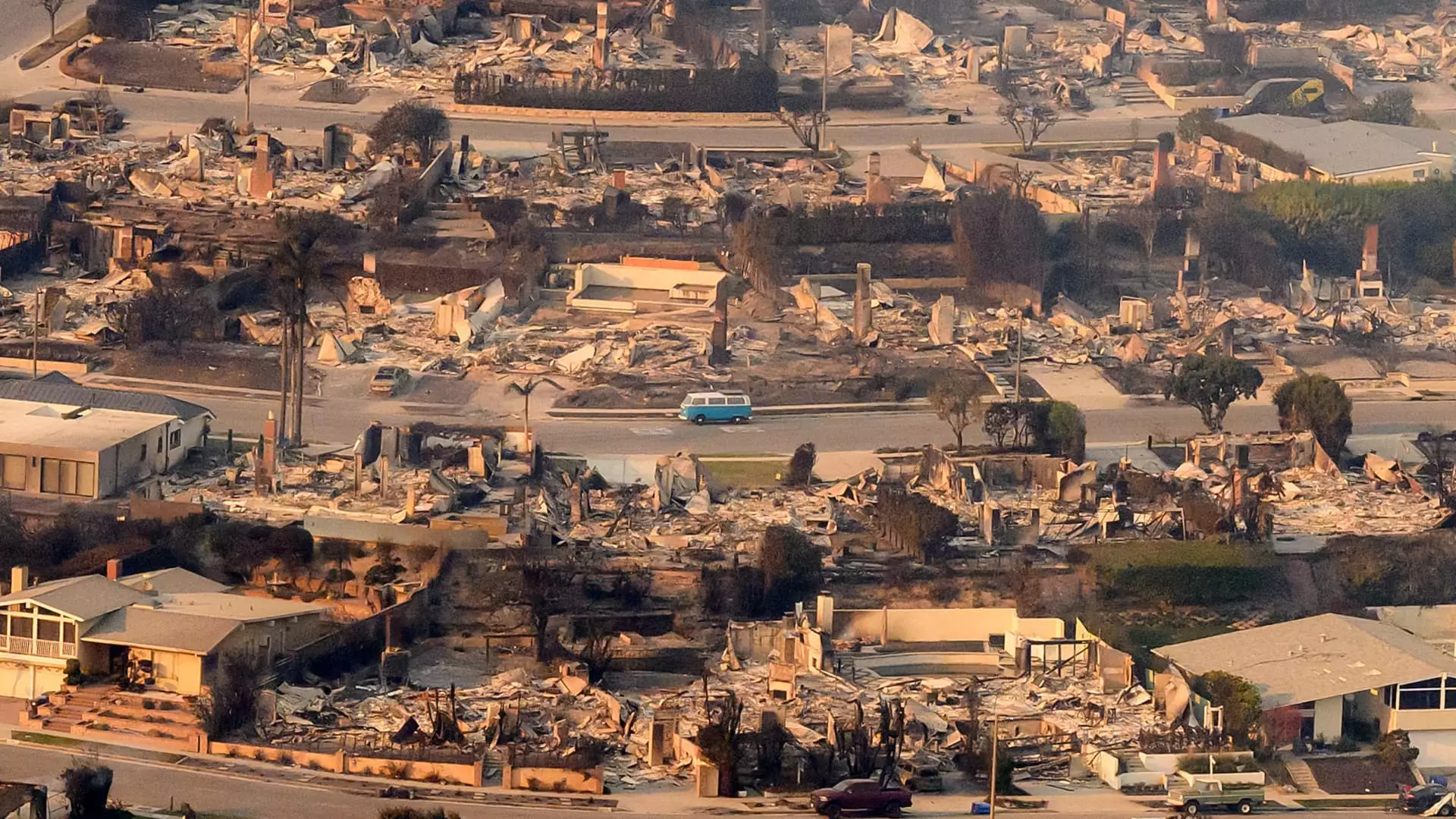As the chaotic aftermath of the recent wildfires in Los Angeles unfolded, the financial ramifications for insurers became starkly evident. Major players in the homeowners’ insurance market saw a significant drop in their stock prices, particularly on Friday, following news of the wildfires’ severe impact. Allstate and Chubb experienced a notable decline of 4% in their shares, with AIG and Travelers trailing closely behind with drops of around 2%. These companies were not just any stocks on the S&P 500; they represented some of the most exposed insurers to the catastrophic losses arising from the fires that ravaged Southern California.
The focus of market analysts, particularly from JPMorgan, has been concentrated on the insurers most hampered by these blazes. Allstate, Chubb, and Travelers stand out as the primary companies vulnerable to insured losses caused by these wildfires. In particular, Chubb’s emphasis on high-net-worth individuals in California raises concerns about its exposure. These insured properties are not only numerous but also of significant monetary value. As the region contends with what may turn out to be the most financially devastating wildfire season in California’s history, estimates suggest that insured losses could escalate beyond a staggering $20 billion—the implication of which dwarfs the previous record set by the 2018 Camp Fire.
The scale of the destruction incited by this year’s fires has prompted comparisons with previous disasters. For perspective, the 2018 Camp Fire incurred insured losses amounting to $12.5 billion, marking it as the costliest wildfire in U.S. history until now. With the current blazes, financial forecasting agencies like Moody’s are projecting that insured losses will escalate into multiple billions, a figure that is heavily influenced by the high values of residential and commercial properties situated in the affected locales.
The Palisades Fire, currently the largest among several ongoing blazes, has already consumed over 17,000 acres and devastated more than 1,000 structures. With the average home value in the Pacific Palisades exceeding $3 million, it’s evident that the financial ramifications of this disaster extend far beyond immediate physical damages, indicating a severe impact on both the insurers and the economy of the region.
The repercussions of these losses are not confined to direct insurers. Reinsurers are also starting to feel the effects, with companies like Arch Capital Group and RenaissanceRe Holdings reporting drops in their stock prices as market sentiment soured on Friday. Industry analysts at JPMorgan foresee that as loss estimates climb, the chances of insurers breaking through their reinsurance attachments may increase. This projection suggests a broader ripple effect throughout the insurance industry, indicating that the full toll of the wildfires may still be unfolding.
As insurance companies navigate this challenging environment, the urgency for reassessment of their risk exposure and loss models is critical. With expectations of a rising frequency and intensity of catastrophic events linked to climate change, the ongoing situation in California serves as a vital reminder of the vulnerabilities inherent in the insurance sector. The unfolding disaster not only jeopardizes the financial stability of these institutions but also underscores the necessity for stronger risk management strategies in the face of an uncertain future.

